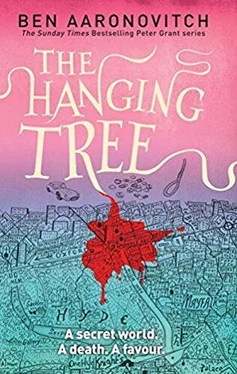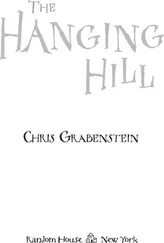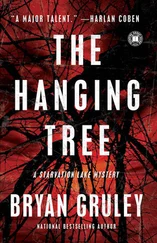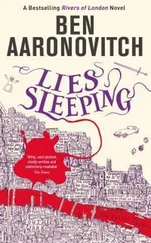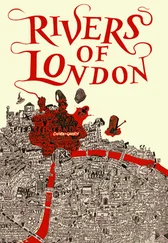‘Why was phase one implemented without a consultation paper?’ asked Folsom or, in other words, how did you manage to spend money without clearing it with the commissioner first.
‘Phase one was implemented under existing Home Office guidelines,’ I said. Last updated in 1956 – during the Suez Crisis, no less, which must have been a good week to announce bits of political housekeeping you might not want to attract too much attention. ‘In addition, phase one was financed entirely from within the current SAU budget.’
In other words, we have our own money so you can stick your oversight in your La Traviata and smoke it.
Folsom hesitated and then shrugged. He wasn’t happy, but he was playing a long game. Besides, he was right – the current Folly operational structure was archaic and not fit for purpose. It was just that I didn’t trust him or Lady Ty to fix it.
Of course, now I was going to have to deliver a consultation paper pretty damn sharpish or I was going to be in major trouble.
So we moved onto what seemed like five days, but was actually just a couple of hours, of wrangling about who was going to do what. Which in the end boiled down to deciding that the NCA would carry on investigating the Faceless Man’s shadowy commercial empire, CTC would handle the Americans and the Folly would handle the Falcon related stuff with support from Belgravia MIT.
‘It’s a good thing that was sorted out,’ said Seawoll. ‘I was beginning to worry.’
We were still running short-handed because Belgravia was busy mopping up their stabbing, but at least we had Guleed who was, I felt, going to be thrilled to bits.
Before we could escape the building a DS Kittredge from CTC took me and Nightingale aside and said that there were some people we needed to talk to first. Kittredge had had the misfortune of getting tangled up with a Folly case a couple of years previously and had obviously got himself on a list as a result. No doubt a senior officer had told him that since he’d dealt with us weirdos before, he was perfectly placed to do it again. His expression was bland but I could tell he’d much rather be out arresting medical students in Ladbroke Grove.
He took us up to the twenty-ninth floor of ESB which, along with the twenty-eighth, was the domain of CTC – Counter Terrorism Command – which is the long spoon by which the Met deals with political crime and the security services.
There, in a conference room, Kittredge introduced us to a couple of officers from MI5. The spooks were a man and a woman, both white, both with deliberately suppressed posh accents and carefully nondescript off the peg suits. He was in his thirties, rugby player fit, with pale blue eyes and a tendency to squint. She was a bit older with auburn hair in a neat bob, grey eyes and gave her name as Finula – no surname. Blondie didn’t give his name at all and spent most of the meeting squinting at Nightingale.
One of them had brought along a fully rugged Tough-book, presumably so they could play Angry Birds under battlefield conditions. Finula saw me looking and gave a rueful shake of her head.
‘Don’t ask,’ she said.
‘Does it self-destruct?’ I asked.
The blondie gave me an irritated look, but DC Kittredge’s lips twitched.
‘No,’ said Finula. ‘But in a pinch you can beat someone to death with it.’
‘I’d like to know how you disabled their vehicle,’ said Blondie.
‘I could show you,’ I said. ‘If you don’t mind me demonstrating on your laptop.’
Finula put her hand on top of the case, an unconscious protective movement and I thought: You totally know what I’m talking about, don’t you?
‘I believe the purpose of this meeting,’ said Nightingale, ‘is to pool information regarding our American friends.’
‘What with all the new Islamist franchises springing up,’ said Finula, ‘not to mention the hardy perennials on the far right and the unrepentant Fenians, we’re a little bit too stretched to spare much attention for our closest allies.’
‘Do you know who they are?’ asked Nightingale.
‘We do now,’ said Finula. ‘They’re a PMC based outside of Charlottesville, Virginia. They’ve done a few small scale contracts in Afghanistan and Iraq – which is how we know them – but nothing like as active as Blackwater. Their official name is Alderman Technical Solutions but that was registered in 2005. Before that it gets murky, but we think they were probably known as The Virginia Gentleman’s Company.’
Nightingale stirred.
‘That name is familiar,’ he said. ‘I believe I met them during the war.’
According to Nightingale, they’d formed the second wave of American practitioners who’d joined the war effort following Pearl Harbour. The first wave had consisted of a hundred or so volunteers from the University of Pennsylvania, the so-called Printer’s Men, who’d arrived in 1940 and worked directly with the Folly or in conjunction with Special Operations Executive.
The Virginia Gentlemen, inevitably nicknamed ‘The Virgins’, had kept themselves separate from the British and Commonwealth practitioners.
‘They mostly operated out of Istanbul,’ said Nightingale. ‘I got the impression that they had a rather low opinion of us, and of course there was the little matter of our allying with Tecumseh in 1812.’
Blondie perked up and asked for a clarification.
Apparently back in 1812, when the special relationship was special in a whole different way, British policy had been to support the creation of a Native American confederacy as a buffer between an aggressively expansionist United States and the completely peace-loving and not in any way land-grabbing bit of the British Empire soon to be known as Canada.
When the Treaty of Ghent ended the War of 1812, the British, in time-honoured fashion, abandoned their allies. Who were subsequently wiped out by the Americans along with any other tribes that happened to be in the same general vicinity – even those that had actually been allied with the US government during the war. It’s exactly this sort of thing, of course, which gives colonialism a bad name.
Nightingale had gained the impression that the Virgins had never forgiven the Folly for its role in providing Tecumseh’s medicine men with modern Newtonian techniques.
‘They rather avoided having anything to do with us,’ said Nightingale.
‘Were they involved in the attack on Ettersberg?’ asked Finula.
‘No,’ said Nightingale. ‘They were . . .’ he paused, looking for the right word, ‘. . . contemptuous. They didn’t believe the research the Germans were doing represented a significant threat to the Allied cause. I thought they were wrong about the threat, but right about the dangers of launching a major operation so deep into enemy territory.’
Dangers that were realised when the cream of British wizardry was cut down in the forests of Grosser Ettersberg.
‘Of course we didn’t know about the Manhattan Project at that time,’ said Nightingale, ‘although I rather suspect they did.’ There was a definite note of bitterness there. Personally, I thought it was probably better that parts of Southern Germany didn’t glow in the dark . . . but then I didn’t leave most of my friends in that forest.
Nightingale shook his head and gave the spooks a tight smile.
‘Of course, none of this is relevant to the present case,’ he said.
‘Did you know the Americans were on their way?’
‘I was given a heads up last week,’ I said.
‘This would be a phone call from Agent Kimberley Reynolds of the FBI,’ said Finula. ‘Yes?’
I said it was and they asked if I’d been in contact with her since.
‘No,’ I said. ‘I didn’t want to land her in it.’
Читать дальше
